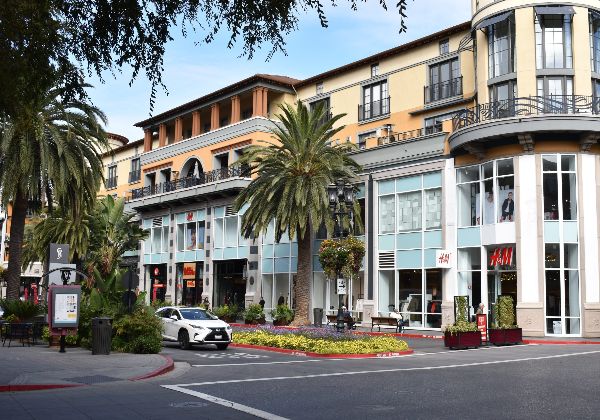It is very interesting that Scott Weiner and the radical Progressives are claiming we need affordable housing. Then they pass legislation that creates luxury housing and no affordable housing. Even the ultra-radical 48 Hills, recognizes Weiner and his buddies are pawns of the rich Left.
“Breed is pushing for more “constraints reduction” that would allow market-rate developers to build high-end housing without public input. Legislation pushed by State Sen. Scott Wiener, and supported by Assemblymembers Phil Ting and Matt Haney will force the city to give up almost all land-use authority if it doesn’t go along.
In all of the news media coverage about the issue, there’s been little discussion about the role Wiener has played in essentially screwing his own city. But the Wiener bill, and the Newsom administration, with the apparent support of Breed, are pushing toward the point where developers will have what’s called the “builder’s remedy,” which means anyone can build anything they want, including demolishing existing rent-controlled housing, without any public input.
While using the poor as the excuse of terrible legislation, Newsom is actually working hard to make his developer friends richer—and San Fran to become a caste system city—the very rich and the very poor.
The housing crisis Scott Wiener created
Demolitions. Displacement. And zero new affordable housing. That’s the bill the state senator got passed, and the supes have to deal with it this week.
By TIM REDMOND, 48 Hills, 12/3/23 https://48hills.org/2023/12/what-scott-wiener-wrought/
On KQED news Sunday night, a reporter announced that “housing advocates” in San Francisco were pushing the Board of Supes to approve the mayor’s housing legislation this week.
The reporter quoted one person, from Habitat for Humanity, which is a fine organization but has never been involved in local housing politics and isn’t a member of the Council of Community Housing Organizations, which has serious problems with the bill.
Nobody from CCHO, from the Race and Equity in All Planning Coalition, or from the Anti-Displacement Coalition, made the cut.
That’s just part of the general news media problem here: Mayor London Breed’s legislation is presented as pro-housing, when it’s actually, at best, pro-luxury housing—and does nothing for affordable housing.
Still, the bill will probably be approved Tuesday/4 by a Board of Supes that doesn’t like, with a large community-based coalition opposing it—and the politics here is important.
Breed is pushing for more “constraints reduction” that would allow market-rate developers to build high-end housing without public input. Legislation pushed by State Sen. Scott Wiener, and supported by Assemblymembers Phil Ting and Matt Haney will force the city to give up almost all land-use authority if it doesn’t go along.
In all of the news media coverage about the issue, there’s been little discussion about the role Wiener has played in essentially screwing his own city. But the Wiener bill, and the Newsom administration, with the apparent support of Breed, are pushing toward the point where developers will have what’s called the “builder’s remedy,” which means anyone can build anything they want, including demolishing existing rent-controlled housing, without any public input.
Breed, with the support of almost all of the local news media, is trying to blame the supes for delaying or seeking to amend her legislation. And if the supes don’t go along with everything the state is asking for, the Yimbys and the mayor will blame them when a 50-story tower that Wiener and the Breed Administration say they oppose starts construction near Ocean Beach.
Gee: If the supes only allowed the demolition of rent-controlled housing and the bulldozing, without any community impact, of historic buildings in the city, this would never have happened.
“They want to blame the board, and affordable housing and tenant advocates, not the lack of affordable housing policies from the Mayor’s Office,” Dyan Ruiz, co-founder of People.Power.Media and a member of the Race and Equity in All Planning Coalition, told me.
In a Nov. 28 letter, David Zisser, assistant deputy director for local government relations and accountability at HCD (and there’s a hell of a job title) says, specifically, that the supes should not approve any effort to protect existing historic properties:
The new amendments could potentially limit the impact of the Ordinance and undermine the City’s ability to implement Required Action 1.10. Specifically, the amendments would require a conditional use authorization for removal of one or more residential units unless the building was built after 1923 (regardless of the building’s significance), is not located in a historic or conservation district (regardless of the building’s significance), or has not been determined eligible for historic designation (regardless of whether it will actually be listed as historic). To safely ensure that the City implements this Action on time, HCD recommends that the Board of Supervisors pass the Ordinance without these or additional substantive amendments.
This is pretty radical: The state is telling the supes which amendments to local land-use law are acceptable. I’ve never seen anything like this happen in the past.
But that’s what Wiener wanted—and based on her responses so far, it appears that this is what Breed wants.
Sup. Rafael Mandelman told me that the situation is, at the very least, a matter of some concern: “I don’t think HCD should be a super planning agency that manages all local decisions.” He said he hopes there is some room for compromise, “but I really don’t want demolition with no process for a building that has historical significance.”
From a press release issued by the Council of Community Housing Organizations, the Race and Equity in All Planning Coalition, the the Anti-Displacement Coalition:
The “Builder’s Remedy” would be at the expense of vulnerable communities who desperately need truly affordable housing and are more likely to live in rent-control housing, which are both being threatened by HCD. In HCD’s PPR, they made clear that if the City of San Francisco does not pass the Mayor’s streamlining legislation which removes processes used to protect tenants from eviction and without amendments that would protect the demolition of rent-controlled housing, the State will withdraw funding for affordable housing and transportation to San Francisco.
“It’s really clear who the winners and losers are when it comes to HCD’s strong-arming San Francisco. Luxury developers are going to get automatic approvals for developments that they can cash in for more profits without even building. Meanwhile, low-income communities of color are going to have less affordable places to live and will be silenced,” says Jeantelle Laberinto of the Race & Equity in all Planning Coalition – San Francisco (REP-SF).
More:
The author of the November letter, Assistant Deputy Director of HCD David Zisser, and lead researcher for the PPR, Prof. Moira O’Neill, even presented at a developer lobby event on November 28, hosted by YIMBY Action called “Clock’s Ticking” where it was clear that developers are eager for all the power they may soon get when the state removes all of San Francisco’s local decision-making power over development.
“It looks to us like the ‘constraints’ HCD is so focused on reducing are actually the people living here,” says Molly Goldberg of the San Francisco Anti Displacement Coalition (SFADC). “Thousands of low-income seniors and working class people who have managed to hang on onto lower rent units could be facing evictions if the Builder’s Remedy kicks in. It’s as if the state sees low-income renters as simply impediments in the way of new luxury condos.”
I reviewed a video and a transcript of the event, and Zisser essentially supports the entire Yimby narrative. He also says this:
If San Francisco’s current rate of housing approvals and construction were to continue the city would you know by far miss its housing production goal of 82,000 new homes by 2031. So it has to add about 10,000 new homes each year and that includes about 5,800 affordable homes and meanwhile as of you know, a couple weeks ago when I saw the data San Francisco was permitting about less than one home a day.
Amazing: There is absolutely nothing in the HCD letter, or in the legislation, that does anything at all to help nonprofits in the city build 5,800 affordable units a year. There’s no new state money—and according to the people who build affordable housing, and the Planning Department, the main “constraint” limiting affordable housing isn’t community input or public process; it’s money.
Breed admitted in March that the city will not live up to the affordable housing goals in the Housing Element.
So this entire discussion is just about luxury developers making higher profits.
When the bulldozers arrive, and the evictions soar, and displacement gets even worse, and housing is still too expensive for anyone who isn’t rich, perhaps the local media will remember who created this situation. It wasn’t “anti-housing” supes, who have already approved a long list of measures making life and profit easier for developers. It was State Sen. Scott Wiener, Gov. Gavin Newsom, and Mayor London Breed.
The mayor called the Asian Pacific Economic Cooperation summit a grand success for the city. But for a lot of small businesses and residents of the Soma area that was most directly impacted, the summit caused a long list of problems.
Sups. Matt Dorsey and Connie Chan are holding at hearing at the Budget and Finance Committee Wednesday/6 on the impacts, and have asked Soma Pilipinas and the Yerba Buena Community Benefits District to report. That hearing starts at 10am.





Wiener is a real piece of work. If he wants to be remembered for his “good deeds” I would suggest he back legislation that provides homeless housing in the form of newly produced “Wienermobiles”. Yes, the very same thing I saw travel from town to town in the Midwest in the 1950’s and 1960’s as an advertising gimmick for Oscar Meyer. Just think how much cleaner San Francisco would be with no shabby tents and trash littering the streets…just nice clean “Wienermobiles” parked end to end. Oscar Meyer might even provide some financing in return for the mobile advertising and Scott Weiner would retire as a famous problem solver rather than a problem creator.